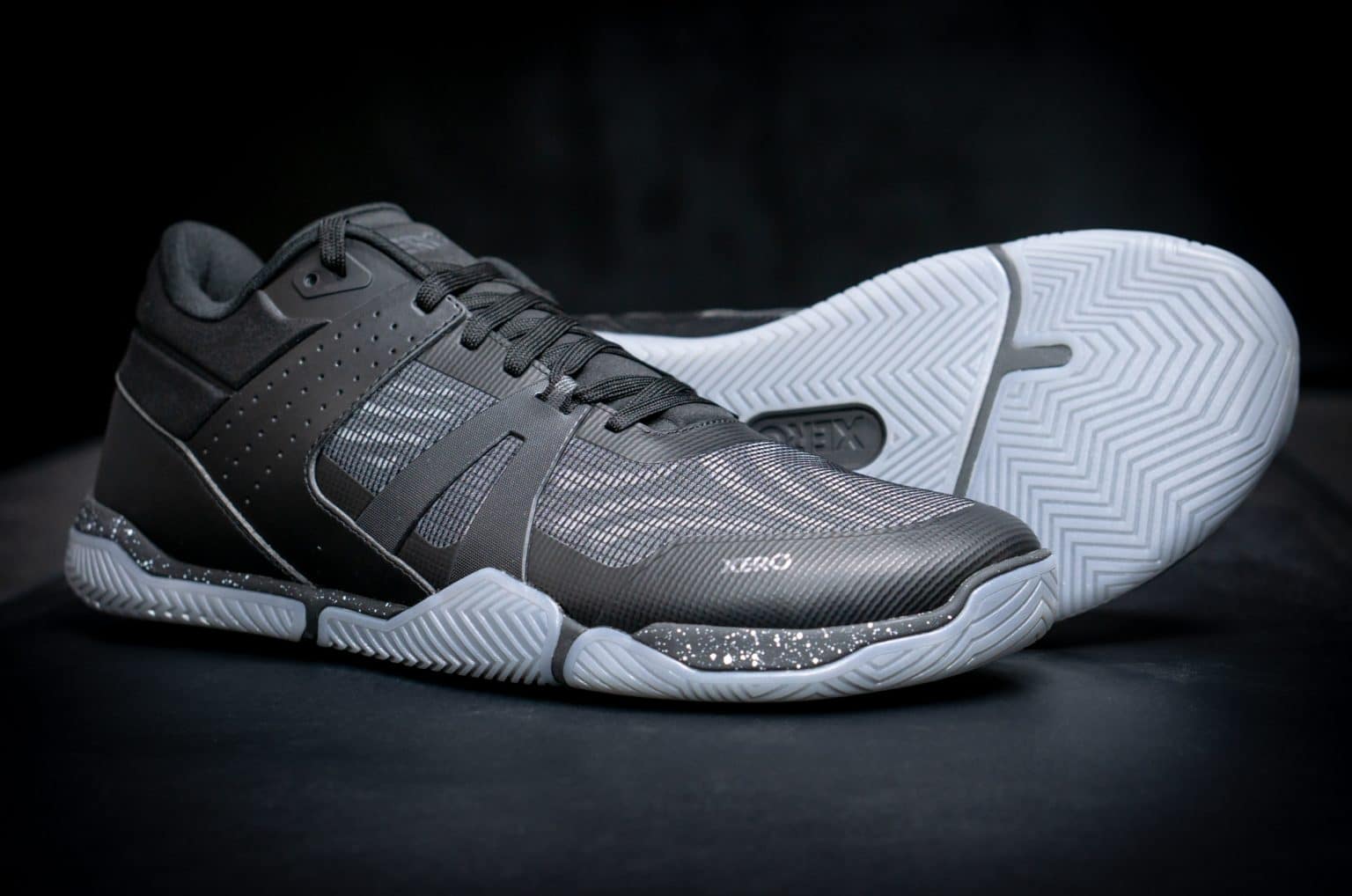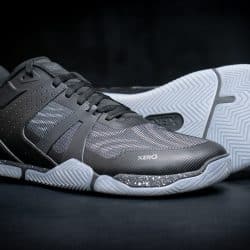A First Look and at the X1: Minimalist Basketball Shoes from Xero Shoes
For more than a decade, I have been on the hunt for a truly minimalist basketball shoe—one that combines the natural feel of a barefoot running shoe with the lateral support needed on the court. With Xero Shoes’ new X1 barefoot basketball shoe, it seems that wait may finally be over. Xero Shoes sent me a pair of trial X1 basketball shoes about one month before their official release. I’ve been playing in the shoes indoors and outdoors, what follows is my initial impression and review (spoiler, they rock).
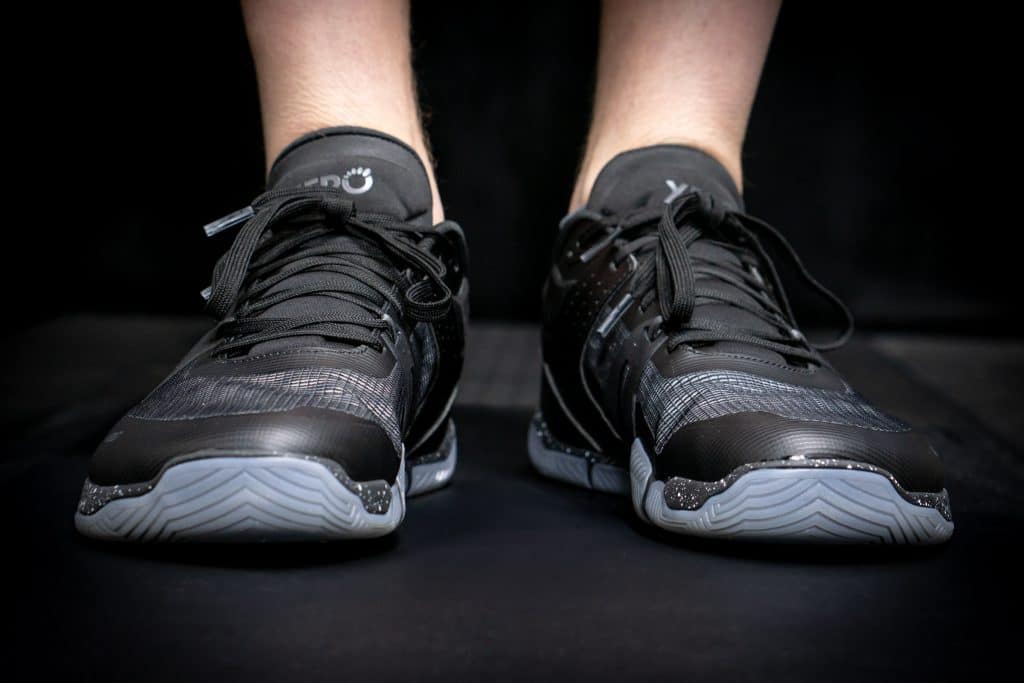
Wait, why “barefoot” shoes? Isn’t that a terrible idea for basketball?
My journey into minimalist (or “barefoot-style”) footwear began well over ten years ago. After meeting Steven Sashen, the founder of Xero Shoes (shortly after his appearance on Shark Tank), I was completely sold on the concept. From trail running to everyday wear, I’ve found minimalist footwear seems to strengthen my feet, ankles, and legs, all the way up to the hips.
At their core, minimalist shoes feature:
- Zero-Drop Construction: The heel and toe are at the same height, preventing that raised, cushioned heel typical of most athletic shoes.
- Wide Toe Box: Allowing the toes to spread naturally, promoting better balance and stability.
- Flexible Soles: Encouraging natural foot movement and strengthening the foot’s support structure.
Because of these features, many people (myself included) find they seem to help build the entire leg chain—arches, Achilles, calves, knees, and hips—over time. However, as with any new style of shoe, phasing them in gradually is key.
Minimalist Meets Basketball Shoes
Basketball sneakers have long been known for their chunky soles and substantial cushioning, which can feel stiff and elevated. For players used to minimalist running shoes, the transition to traditional basketball shoes can be jarring. I’ve personally felt more risk of rolling an ankle due to the taller heel-to-toe construction in standard basketball footwear.
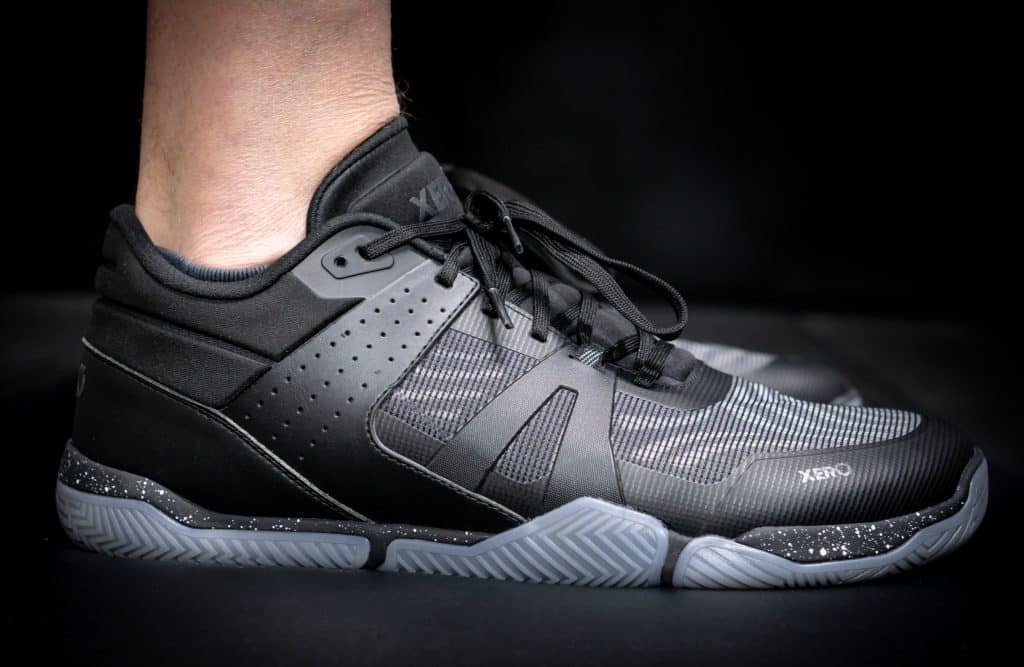
Over the years, I resorted to playing in shoes not designed specifically for basketball, such as older New Balance Minimus models. They offered the flat, grounded feel I love, though they attracted plenty of curious looks at the gym. Xero Shoes’ Prio, designed more for running and cross-training, served me well on the basketball court, thanks to its huarache-style strap system that cinches tightly around the foot. But while they handled lateral cuts reasonably well, they weren’t explicitly built for the rigors of basketball.
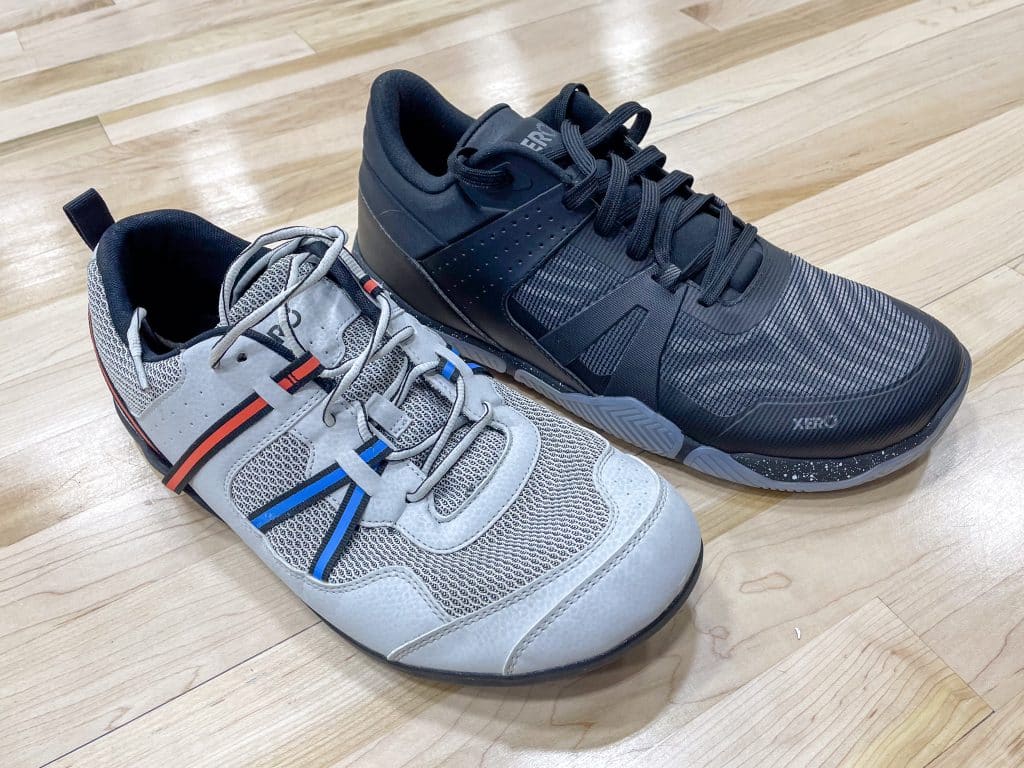
That’s what makes the arrival of Xero Shoes’ new X1 so exciting—it’s the company’s first dedicated minimalist basketball shoe.
First Impressions of the Xero Shoes X1 Basketball Shoe
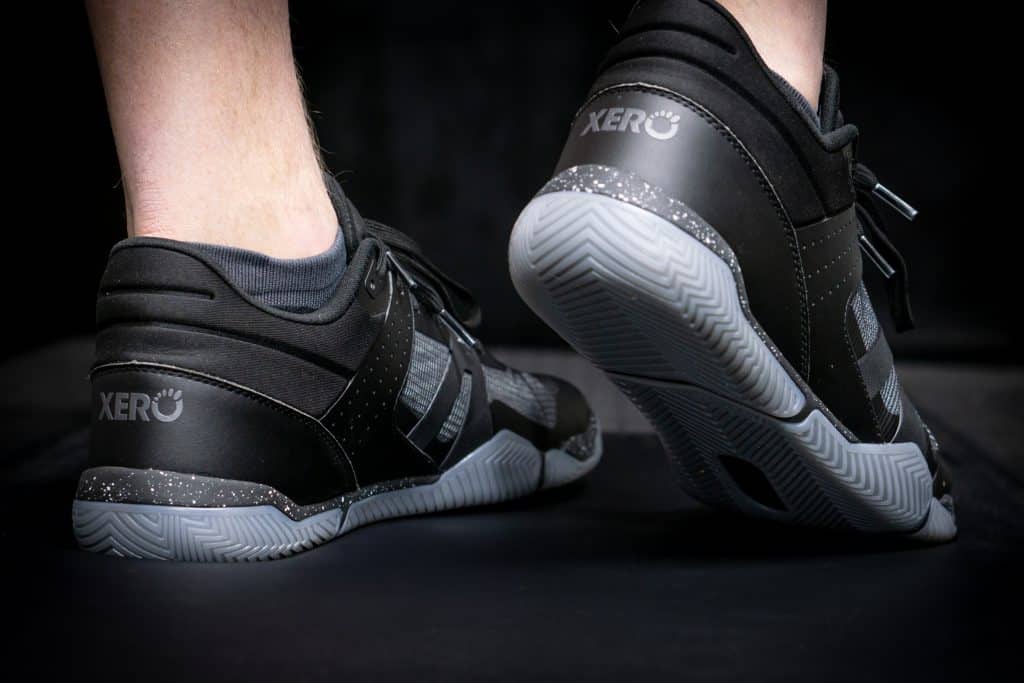
The X1 is available in both high- and low-top versions, but I’ve been testing the low-top. Right out of the box, a few things stood out:
- Durable, Supportive Materials: While still lightweight and flexible, the X1’s materials feel more substantial than typical minimalist running shoes. The thick, neoprene-like tongue and reinforced heel cushioning are designed for the quick pivots and physical demands of basketball.
- Wide, Flat Sole: True to minimalist principles, the X1 keeps you close to the ground with a zero-drop platform. The outsole tread is grippy, giving you traction for sudden stops and sharp turns.
- Lockdown Lacing & Huarache Strap: The side straps (inspired by Xero’s sandal designs) tighten across the midfoot to keep you secure during lateral movements.
- Removable Insole: Consistent with other Xero models, the X1’s insole can be removed or swapped out, though I’d likely keep it in for the added cushion on hard indoor courts.
To summarize the key specs and how the X1 compares to a typical basketball shoe, the table below highlights some differences:
| Feature | Xero Shoes X1 (Minimalist) | Traditional Basketball Shoe (Typical) |
|---|---|---|
| Weight | ~11.2 oz (Men’s 9); very lightweight | 12–15 oz common (varies by model; some as low as 9–10 oz, others 15+ oz) |
| Stack Height | ~12.5 mm total (extremely low) | ~25–30 mm total (midsole + outsole) – about double X1 |
| Heel-to-Toe Drop | 0 mm (flat zero-drop) | Typically 6–10 mm drop (higher heel cushion) |
| Toe Box Width | Wide, foot-shaped toe box | Generally narrower, tapered toe box |
| Cushioning | Minimal thin foam (just for bruise protection); no air/gel units | Thick foam midsole, often with air or gel tech for impact absorption |
| Flexibility | Highly flexible sole (can bend/twist freely) | Moderate to low flexibility (stiffer for stability; some rigidity plates) |
| Support Features | Internal strap + external “V” brace for lockdown; no bulky stabilizers | Rigid heel counter, midfoot shank, outrigger sole, high collar or straps for support |
| Ankle Cut | Mid or Low available (minimal difference aside from coverage) | Low, Mid, or High – often high tops for ankle support, though low-tops common too |
| Foot Last Shape | Anatomical (men’s and women’s lasts) | Usually a unisex last, not as anatomical (performance-fit) |
| Intended Feel | “Barefoot” feel: grounded, high foot engagement | Cushioned ride: protective, some energy return |
(Table: Comparison of Xero X1 vs. conventional basketball shoe characteristics.)
Aesthetically, Xero kept the design fairly conservative (especially in this black colorway), but there are bolder options like lime, cherry, and white. Small details—like speckles on the midsole—add a bit of flair without going overboard.
The Basketball-Barefoot Connection
Why try minimalist shoes on the court at all? While high-performance NBA sneakers tend to focus on cushion and “energy return,” there’s a growing community of players, coaches, and trainers who believe in strengthening the foot and lower leg for better injury prevention and performance.
- Ben Patrick from Knees Over Toes has made waves for adopting minimalist footwear in his programs.
- Justin Holiday of the NBA famously tried a prototype of a minimalist-inspired basketball sneaker during a playoff run.
- NBA power forward Isaiah Stewart is wearing X1 basketball shoes in games.
Even Kobe Bryant once advocated for lower-profile, more natural-feeling basketball shoes—a departure from the heavily padded styles in the market. However, Nike seems to release many shoes in limited runs, more like collector’s items which drives the prices up and makes availability difficult.
My experience playing in the X1
Having played in the X1 outdoors and indoors, it seems to strike a practical balance—minimalist in principle but structured enough to handle the physical stress of basketball.
X1 Basketball Shoe Traction
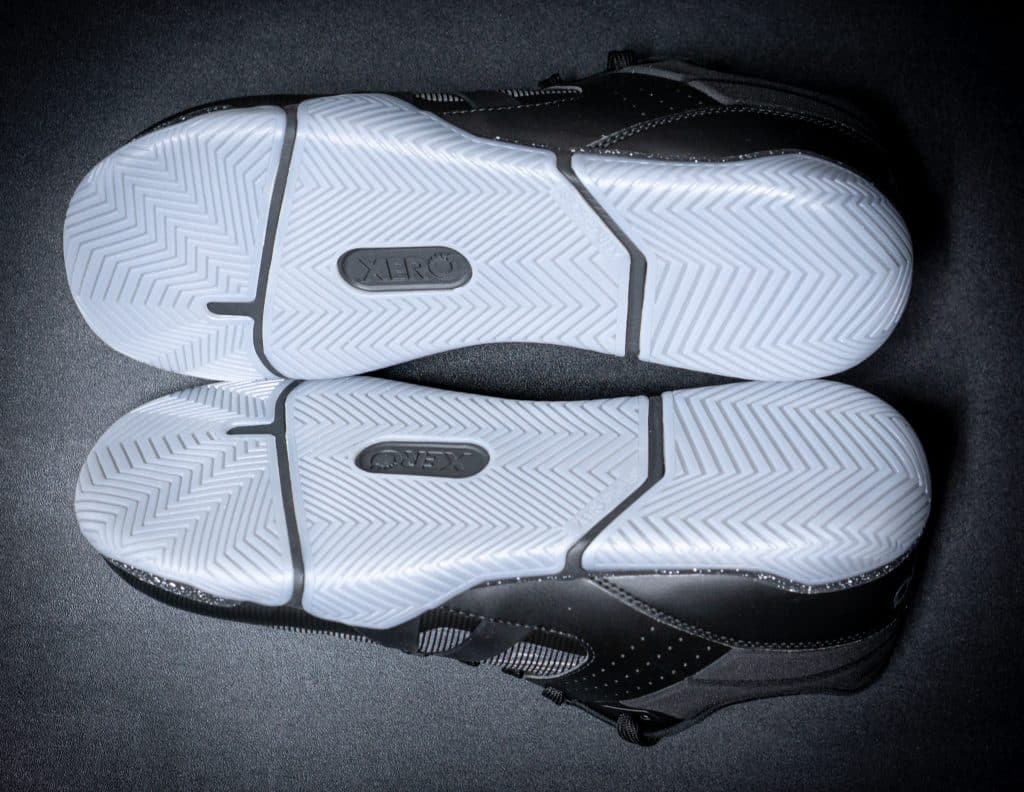
The herringbone-like sole of the X1 sticks well indoors and outdoors. The first games I wore them in were a squeakfest, which made me really happy! The material seems durable and grippy, only slipping on really dirty gym floors which is true for all shoes. The only unknown so far, is how well the sole will hold up on outdoor surfaces. I ran them on a smooth concrete and they seemed to be doing well, but I’m not sure how much outdoor play one can expect before they break down. Personally, I plan to wear them inside primarily.
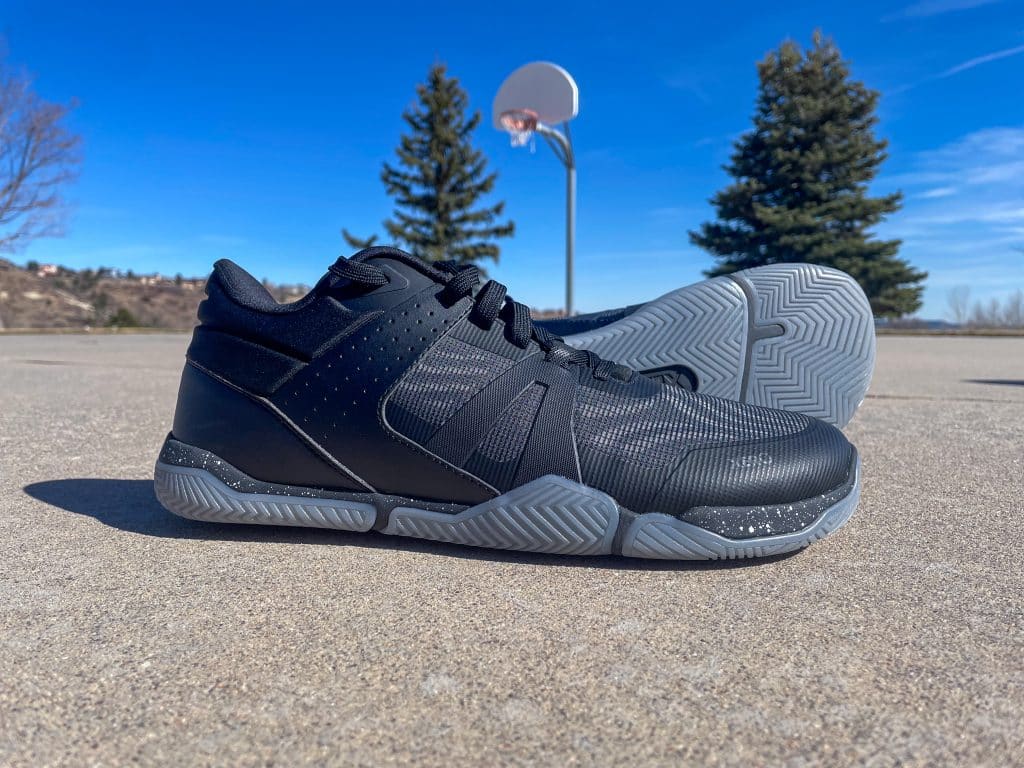
X1 Basketball Shoe Lockdown
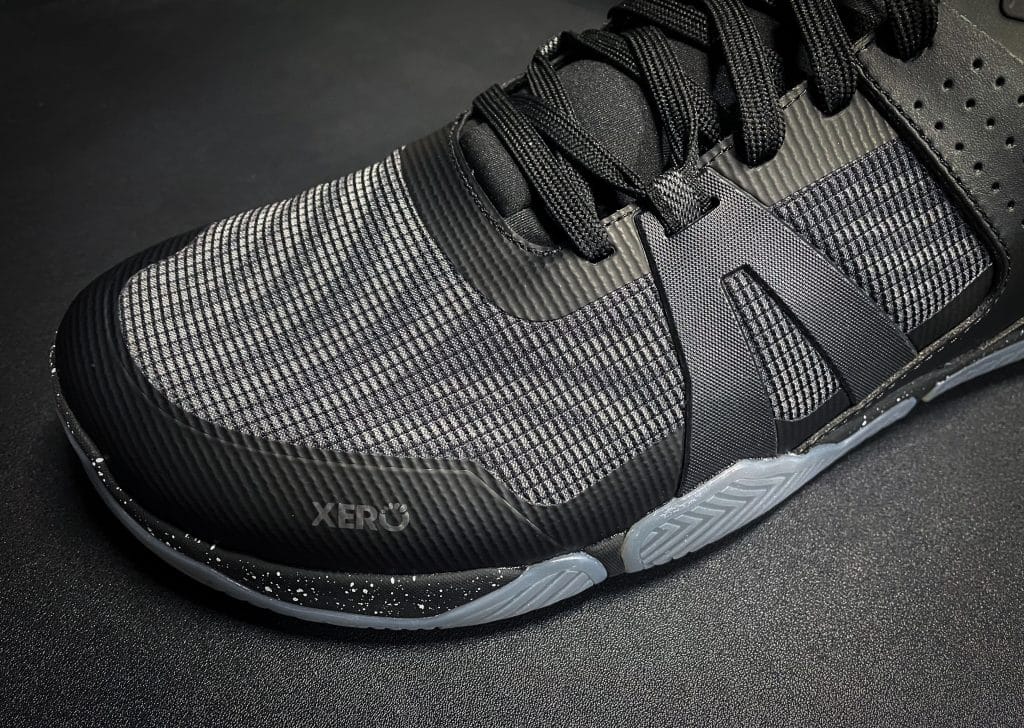
Since a barefoot basketball shoe has a wider toe box, one major concern is how much play or movement will happen in the forefoot. I’m please to say, for my foot (which is about a 2E in normal shoes), the lockdown is shockingly good. I even A/B tested the shoe for forward and lateral hard stops versus the Xero Shoes Prio and Xero Shoes 360. Having played a lot of basketball in the Prio, I was surprised to notice how much play the Prio had on hard lateral stops versus the X1 which stopped on a dime with no play. The 360 had an unacceptable amount of play to the sides.
X1 Basketball Shoe Stack Height and Weight
The X1 basketball shoe has a stack height of 12.5mm and weights about 11.2oz in a men’s size 9 (US). This means it is about half the height of a typical basketball shoe and on the lighter end of the weight scale. Playing in the shoe, I definitely noticed the low, grounded feel and the weight was fine. Being used to barefoot shoes, these feel heavier than the typical barefoot shoe but lighter than the average basketball shoe.
X1 Barefoot Basketball Shoe Lacing
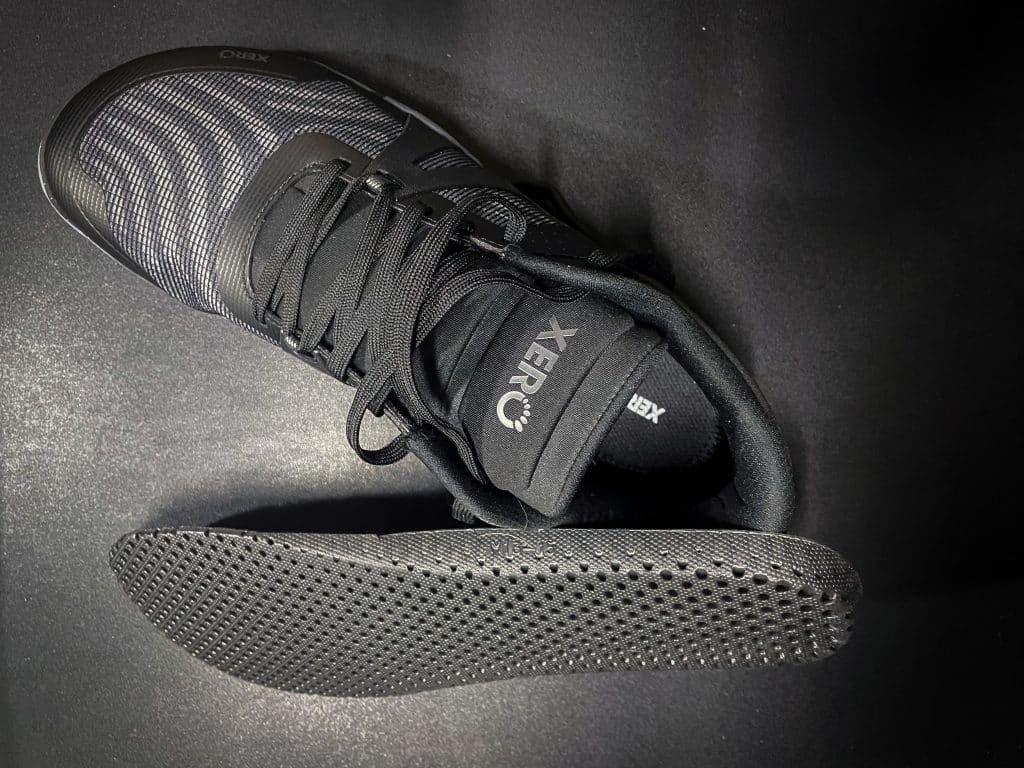
Some Xero Shoes have peculiar shoe lace choices, but the X1 has an excellent lacing setup with nice, wide lacing, plenty of coverage, and good fit around the ankle area.
X1 Flexibility and Fit
Traditional shoe wearers will find the X1 basketball shoe to feel quite flexible compared to most shoes. Minimalist shoe wearers will feel like the X1 is stiffer than what they are used to but more flexible than many shoes.
Initially, I thought the X1 was a little stiff for my tasted, but it has broken in well. The forefoot has great flex. The midfoot and heel are stiffer, but this isn’t bad for basketball where hard landings are typical.
As for fit, the X1 comes in men’s and women’s versions where the women’s version is specifically designed for their feet, not just ported over from the men’s shoe. WNBA player Temi Fagbenle is wearing X1s.
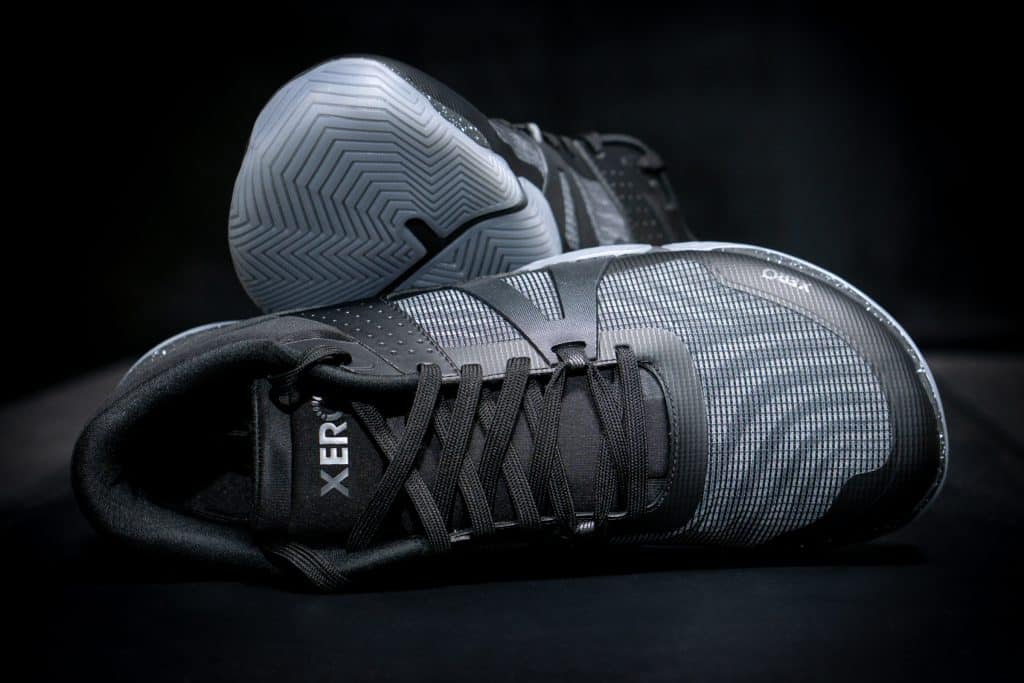
The Bottom Line
For seasoned minimalist shoe enthusiasts who’ve been waiting for a basketball-specific design, the X1 is a promising start from Xero Shoes. It stays true to the brand’s core philosophy—flat, lightweight, wide toe box—yet incorporates enough structural support for serious lateral movement and frequent jumping.
For those who’ve never tried a barefoot-style shoe, the X1 is a great entry point since it isn’t overly minimalistic. If you’re brand new to minimalist footwear, don’t jump straight in at full intensity: phase them into your routine gradually to let your feet and legs adjust.
The X1 is poised to bring barefoot principles to one of the most demanding sports around, and I’m excited to see what the basketball world thinks.
Whether you’re a die-hard minimalist looking for a new court option or just curious to try something outside the realm of traditional basketball sneakers, the X1 barefoot basketball shoe deserves a spot on your radar.

